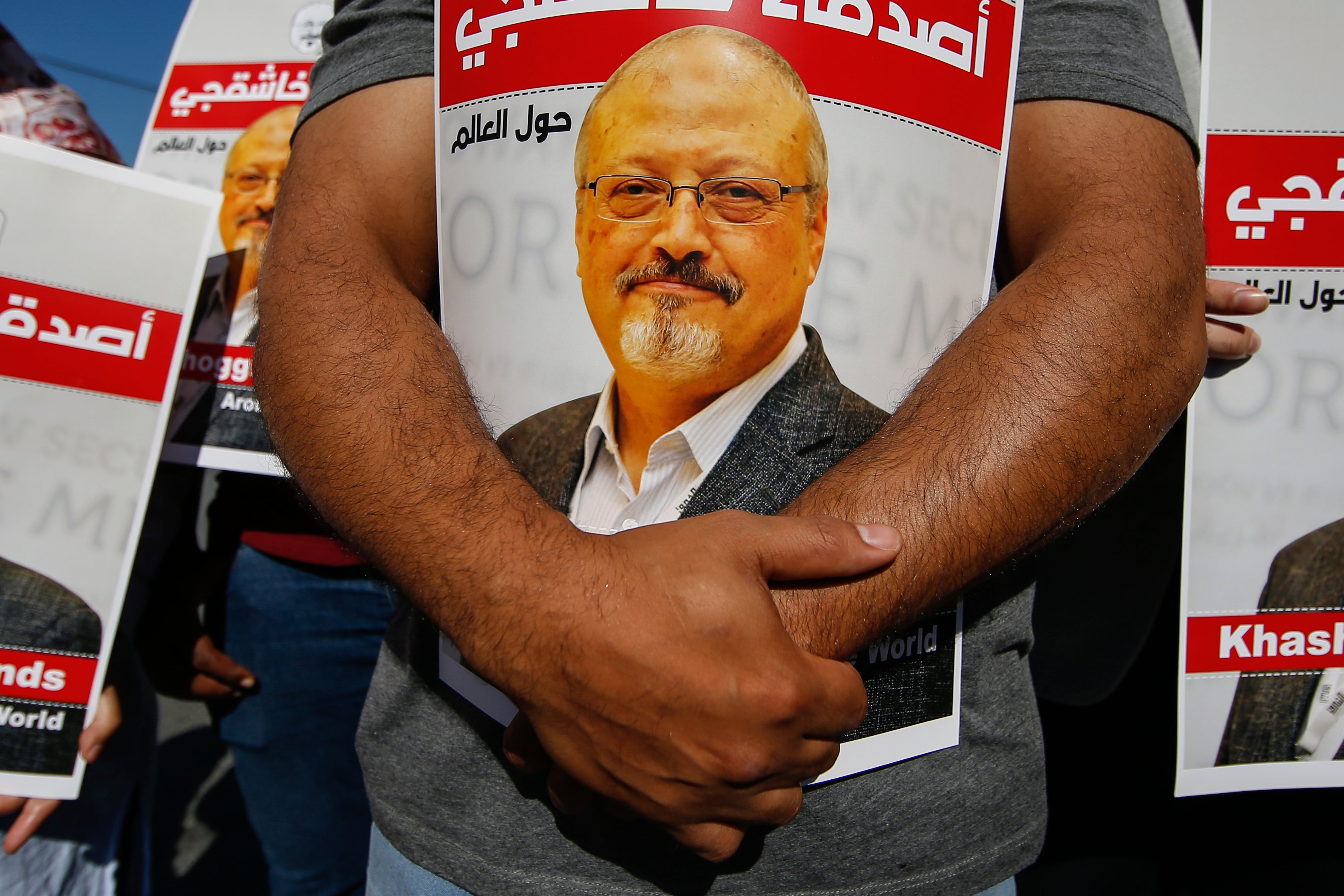Turkey halts Khashoggi murder trial and transfers it to Saudi Arabia
The trial in absentia of 26 Saudi suspects will be transferred from Istanbul to Riyadh

Your support helps us to tell the story
From reproductive rights to climate change to Big Tech, The Independent is on the ground when the story is developing. Whether it's investigating the financials of Elon Musk's pro-Trump PAC or producing our latest documentary, 'The A Word', which shines a light on the American women fighting for reproductive rights, we know how important it is to parse out the facts from the messaging.
At such a critical moment in US history, we need reporters on the ground. Your donation allows us to keep sending journalists to speak to both sides of the story.
The Independent is trusted by Americans across the entire political spectrum. And unlike many other quality news outlets, we choose not to lock Americans out of our reporting and analysis with paywalls. We believe quality journalism should be available to everyone, paid for by those who can afford it.
Your support makes all the difference.A Turkish court has suspended the trial in absentia of 26 Saudis accused of the gruesome killing of Washington Post columnist Jamal Khashoggi and said the case should be transferred to Saudi Arabia.
The decision comes despite warnings from human rights groups that turning the case over to the kingdom would lead to a cover up of the killing that has cast suspicion on Saudi Crown Prince Mohammed bin Salman.
It also comes as Turkey, which is facing an economic downturn, has been trying to repair its troubled relationship with Saudi Arabia and other countries in the region.
Some media reports have claimed that Riyadh has made improved relations conditional on Turkey dropping the case against the Saudis.
Mr Khashoggi, who wrote critically about Saudi Arabia’s crown prince, disappeared on 2 October 2018 after entering the Saudi consulate in Istanbul, seeking documents that would allow him to marry his Turkish fiancee. He never emerged.
Last week, a prosecutor recommended that the case be transferred to the kingdom, arguing that the trial in Turkey would remain inconclusive.
Turkey’s justice minister supported the recommendation, adding that the trial in Turkey would resume if the Turkish court is not satisfied with the outcome of proceedings in Saudi Arabia.
It was not clear, however, if Saudi Arabia, which has already put some of the defendants on trial behind closed doors, would open a new trial.
Human rights advocates had urged Turkey not to transfer the case.
“By transferring the case of a murder that was committed on its territory, Turkey will be knowingly and willingly sending the case back into the hands of those who bear its responsibility,” said Amnesty International’s secretary general, Agnes Callamard.
“Indeed, the Saudi system has repeatedly failed to cooperate with the Turkish prosecutor and it is clear that justice cannot be delivered by a Saudi court.
“What has happened to Turkey’s declared commitment that justice must prevail for this gruesome murder and that this case would never become a pawn in political calculations and interest?” she asked.
The New York-based Human Rights Watch said: “Given the complete lack of judicial independence in Saudi Arabia, the role of the Saudi government in Khashoggi’s killing, its past attempts at obstructing justice, and a criminal justice system that fails to satisfy basic standards of fairness, chances of a fair trial for the Khashoggi case in Saudi Arabia are close to nil.”
Turkish officials allege that Mr Khashoggi was killed and then dismembered with a bone saw inside the consulate by a team of Saudi agents sent to Istanbul.
The group included a forensic doctor, intelligence and security officers and individuals who worked for the crown prince’s office. Mr Khashoggi’s remains have not been found.
Turkey apparently had the Saudi Consulate bugged and shared audio of the killing with the CIA, among others.
The murder sparked international outrage and condemnation. Western intelligence agencies, as well as the US Congress, have said that an operation of that magnitude could not have happened without the knowledge of the prince.
Turkey began prosecuting the defendants in absentia in 2020 after Saudi Arabia rejected requests for their extradition. The defendants included two former aides of the prince.
Some of the men were put on trial in Riyadh behind closed doors.
A Saudi court issued a final verdict in 2020 that sentenced five mid-level officials and operatives to 20-year jail terms.
The court had originally ordered the death penalty but reduced the punishment after Mr Khashoggi’s son Salah, who lives in Saudi Arabia, announced that he forgave the defendants. Three others were sentenced to lesser jail terms.

